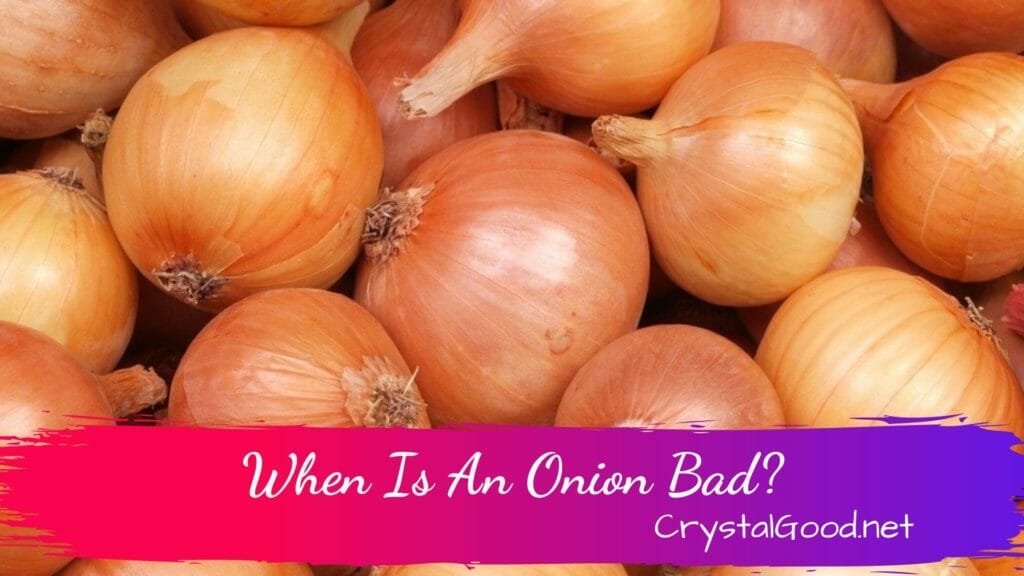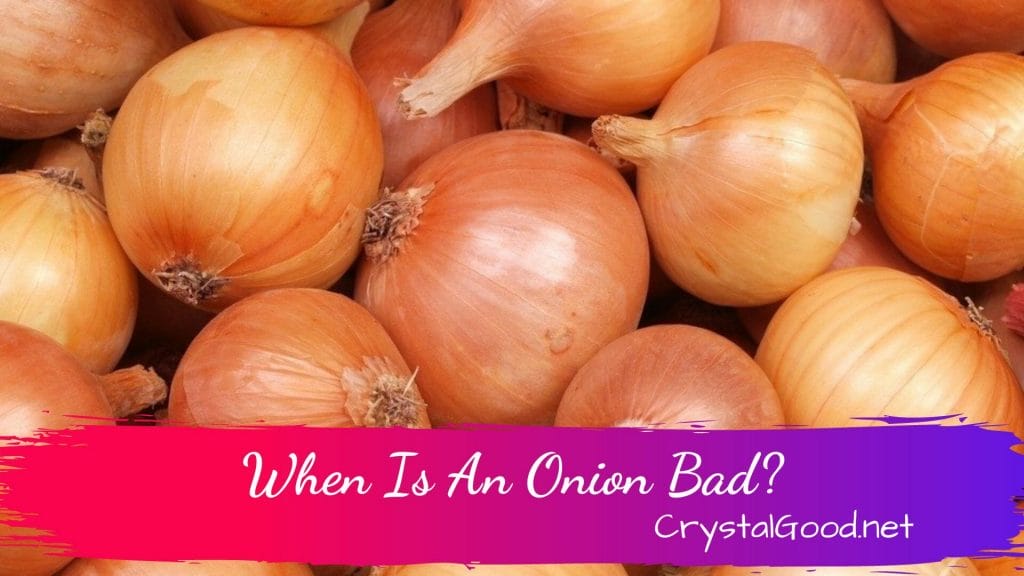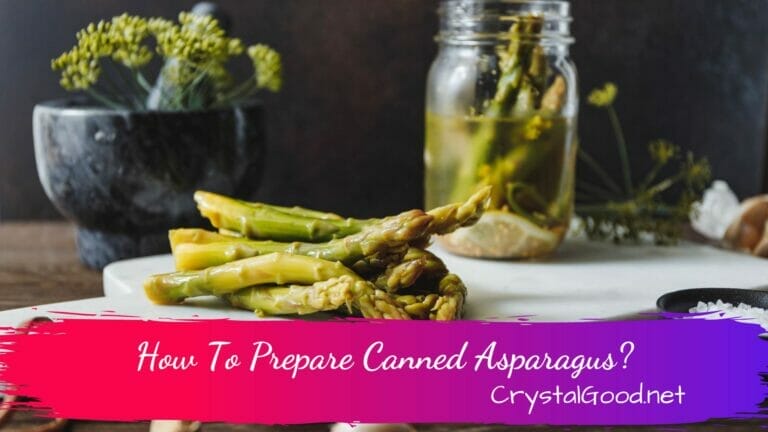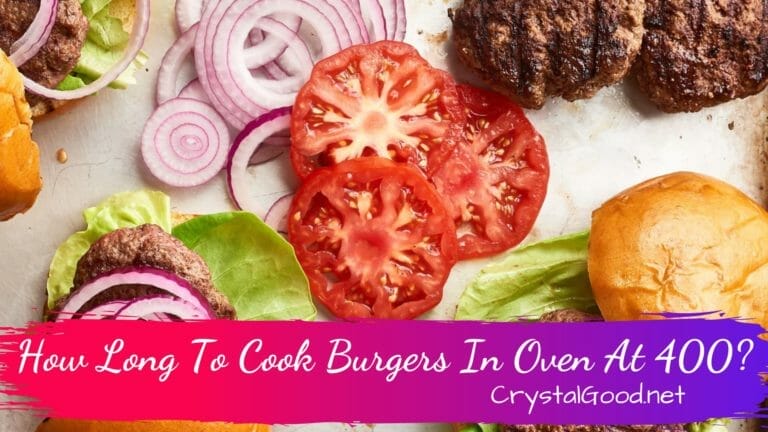Onions are a staple in many kitchens, but is an onion ever bad? In this post, we’ll take a look at when onions are good and when they’re bad. Plus, we’ll give you some tips on how to store onions to keep them fresh for as long as possible. Let’s get started!

How do you chop an onion without crying?
Contents
Getting your chops around an onion can be frustrating. It can be difficult to keep your eyes from tearing up, especially if you’re not a fan of chopping. But a little trick may help you out. Using the right tools and a little forethought can make cutting an onion a pleasant experience.
The best way to prevent tears from onions is to make sure you are using the right tools. For example, a sharp knife is much easier to use than a dull one. A good chef’s knife can be kept sharp, or you can invest in a sharpener. You can also try microwaving your onion to reduce the tear-inducing gas.
Another trick is to try mouth breathing. It sounds like a silly idea, but it actually works. Taking a breath of air while chewing can help prevent tears from forming. You may also need a bowl to catch the tears.
If you aren’t comfortable wearing glasses, the simplest solution is to use contact lenses. You might be surprised to learn that wearing contact lenses is more effective than regular glasses.
How do you store onions to keep them fresh?
Keeping onions fresh is important. The smell, texture, and flavor can be affected by a variety of factors, such as moisture and heat. The best way to store onions is to make sure they are in a cool, dark place.
Onions can be frozen and stored for long periods. When storing onions in the refrigerator, use an airtight container. The cold environment helps convert starch into sugar, which helps keep the onions from becoming soggy. The cold temperature also slows the decay process.
When storing whole onions, use a perforated basket. You can also use a mesh bag. These are reusable and washable.
Whole onions are best stored in a dark place. This will keep them from sprouting. You can also store them in a cooler cupboard. However, onions will be much more susceptible to rot if they are stored near other produce.
If you are storing onions for a short period of time, you can place them in a bowl on the kitchen counter. You can wrap them in cling film to prevent them from drying out.
Can you freeze onions?
Whether you are preparing a salad or a sandwich, you will find that onions are very useful to add to any dish. They add flavor and fiber to your dishes.
The only problem with freezing onions is that they are not as crisp and crunchy as fresh onions. However, the taste is not affected and the onions stay good for up to six months in the freezer.
You can freeze onions individually or in batches. The best method is to freeze sliced onions. These are easier to handle than whole onions and will take up less freezer space.
After you have frozen your onions, you can place them in airtight containers. This will prevent the onion’s pungent odor from escaping. They should also be labeled with an expiration date. This will help you keep track of when to use your onions.
When you are ready to use your onions, you can take out a portion and defrost it in the fridge. It may take a few hours to defrost larger pieces.
To freeze onions, cut the onions from the shoot end and put them in a freezer-safe container. You can use any type of freezer-safe container, whether it is a zip top bag, a freezer tray or a freezer-friendly plastic bag. The bag must be made of food grade materials and should be tightly sealed.
What is the best way to use leftover onions?
Using onions is a great way to add flavor to dishes. They are also packed with vitamins, minerals, and antioxidants. However, onions can be prone to spoilage, so it is important to store them properly.
There are many ways to store onions, but the best way is to store them in a cool, dry, and dark place. Once cut, onions can be stored in a refrigerator for about seven to ten days, and for up to six months in the freezer.
If you’re planning on freezing onions, you’ll need to use a freezer-friendly container. The best container to use is a mesh bag, as it allows the moisture to escape without letting mold grow.
Onions are also great for sauteing. This method only takes 10 minutes and makes any dish more savory. You can use the onions in sandwiches, casseroles, or as a side dish. You can also use the caramelized onions to top a pizza, or to make an easy pizza sauce.
Onions are a great ingredient to use in a vegetable soup. You can use noodles, carrots, celery, and onion to make a hearty and cozy soup.
Is it safe to eat onion skins?
Whether or not onions can be eaten on the skin can be a little bit of an uncertainty. It is best to be safe than sorry. Onions are a good source of nutrients, though. They are packed with antioxidants and flavonoids. These nutrients help prevent inflammation, and can improve heart health.
Onions are part of the Allium plant family, which also includes garlic. These plants are known for their multiple layers of skin. The outermost layer is very tough and resists peeling. The middle layer contains a pigment, and the innermost layer contains water.
Onion skins contain high amounts of quercetin, a potent antioxidant. Quercetin helps fight inflammation and has been shown to lower blood pressure and cholesterol. It is also being studied for its ability to protect against certain forms of cancer.
Onion skins are also high in fibre. This is important, as diets high in fiber have been shown to reduce the risk of heart disease. They also help reduce digestive problems.
Despite the fact that onions can be eaten on the skin, they should still be cooked to kill any harmful bacteria. They also need to be dried out. If they are severely moldy, they should be discarded.
When Is An Onion Bad?
Whether you’re preparing your favorite recipe or just grabbing some onions for a quick snack, you want to make sure you’re buying the right type. If you’re buying onions for cooking purposes, make sure to store them in a cool, dark place. You can store them in a mesh storage bag or a brown bag with holes punched in the top.
Onions can be stored for weeks or months if they are properly stored. But if you leave them out for too long, they’ll begin to go bad. This happens because onions lose their hardness and moisture. Keeping onions too long allows them to dry out, a perfect environment for mold to grow.
The biggest enemy of onions is moisture. Aside from losing their hardness, the moisture makes them a great breeding ground for harmful bacteria. Eventually, you’ll get a slimy or fishy smell. These odors are a sign that your onions are going bad.
Onions can also be affected by light. If they are exposed to too much light, they will turn green. The color comes from a chemical compound called ethylene, which is responsible for ripening other foods.
What are the signs of a bad onion?
Whether you are a seasoned cook or new to cooking, you will need to know how to recognize a bad onion before eating it. Bad onions can cause food poisoning, so it is important to be aware of the signs of a bad onion.
The first sign of a bad onion is a soft or mushy texture. You should never eat an onion that is mushy or soft. This is because it is rotting. Bruising on the onion’s flesh is also a sign of rotting. The skin will also discolor.
The second sign of a bad onion is the presence of mold. You should discard any onion that has mold in it. Mold is typically green or grey, but it can be white as well. It can also be present in the liquid of an onion.
Another sign of a bad onion is brown spots on the onion. You should discard any onion with brown spots before peeling it. If there is no mold or rotting smell, you can safely peel and eat the onion.
Conclusion:
Generally, a research paper conclusion should include a summary of key findings, a call to action, and a few suggestions for future studies. It also needs to be brief. It is important to note that a conclusion should not be more than 5% to 15% of the original work.
A good conclusion should be the end of the line and give the reader something to think about after they’ve finished reading. It should be written in a persuasive and confident tone.
The conclusion can be one of the most important parts of an assignment. It is the place where most original contributions are made. The conclusion should be a combination of pertinent information and a sense of emotional appeal. It is also the most important section of the paper.
The conclusion is not the end of a book, but it is the end of a research paper. It should offer the reader a sense of closure and provide a solution to an existing problem. It is also the place where the writer demonstrates how their research can be applied to real-world situations.













